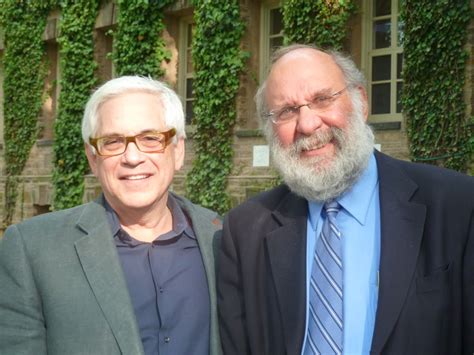A Quote by Barack Obama
For decades, our differences with Iran meant that our governments almost never spoke to each other. Ultimately, that did not advance America's interests.
Related Quotes
Here in America, we don't let our differences tear us apart. Not here. Because we know that our greatness comes from when we appreciate each other's strengths, when we learn from each other, when we lean on each other, because in this country, it's never been each person for themselves. No, we're all in this together. We always have been.
In the past, Germany could rely on the French, the British and, especially, the Americans, to assert our interests in the world. We have always criticized the U.S. for being the global police, and it was often appropriate to do so. But we are now seeing what happens when the U.S. pulls back. If the U.S. leaves the room, other powers immediately walk in. In Syria, it's Russia and Iran. In trade policy, it's China. These examples show that, ultimately, we are no longer achieving either - neither the dissemination of our European values nor the advancement of our interests.
The problem facing our people here in America is bigger than all other personal or organizational differences. Therefore, as leaders, we must stop worrying about the threat that we seem to think we pose to each other's personal prestige, and concentrate our united efforts toward solving the unending hurt that is being done daily to our people here in America.
Sanctions did indeed help to bring Iran to the negotiating table. But sanctions did not stop the advance of Iran's nuclear program. Negotiations have done that, and it is in our interest not to deny ourselves the chance to achieve a long-term, comprehensive solution that would deny Iran a nuclear weapon.
In contrast to the values of morality, which depend on and encourage our similarities to each other, values like friendship or beauty depend on and encourage our differences. Ultimately, friendship is essential to our fashioning ourselves in ways that don't simply repeat the fashions of our surroundings: it is a mechanism of individuality.
Let us not be blind to our differences-but let us also direct attention to our common interests and to the means by which those differences can be resolved. And if we cannot end our differences, at least we can help make the world safe for diversity. For, in the final analysis, our most common link is that we all inhabit this small planet. We all breathe the same air. We all cherish our children's future. And we are all mortal.
If we took just 5 minutes to recognize each other's beauty, instead of attacking each other for our differences. That's not hard. It's really an easier and better way to live. And ultimately, it saves lives. Then again, it's not easy at all. It can be the hardest thing, because loving other people starts with loving ourselves and accepting ourselves. I know many of you have struggled with this. I draw upon your strength and your support, and have, in ways you will never know.
Ultimately, only diplomacy can bring about a durable solution to the challenge posed by Iran's nuclear program. As President and Commander in Chief, I will do what is necessary to prevent Iran from obtaining a nuclear weapon. However, I have a profound responsibility to try to resolve our differences peacefully, rather than rush towards conflict.
Now imagine a world in which everyone, but especially people with power and influence, holds an expanded view of our place in the cosmos. With that perspective, our problems would shrink-or never arise at all-and we could celebrate our earthly differences while shunning the behavior of our predecessors who slaughtered each other because of them.
Ultimately, the challenges of the 21st century can't be met without collective action. Agreement will almost never be easy, and results won't always come quickly. But I am committed to respecting different points of view, and to forging a consensus instead of dictating our terms... That's how we will advance and uphold our ideals.
We are not meant to stay wounded. We are supposed to move through our tragedies and challenges and to help each other move through the many painful episodes of our lives. By remaining stuck in the power of our wounds, we block our own transformation. We overlook the greater gifts inherent in our wounds - the strength to overcome them and the lessons that we are meant to receive through them. Wounds are the means through which we enter the hearts of other people. They are meant to teach us to become compassionate and wise.





























